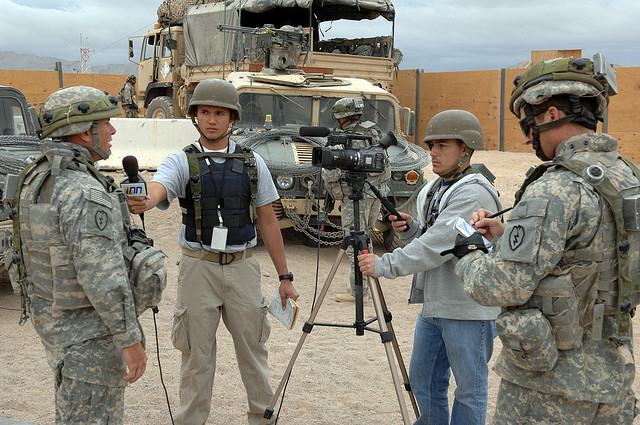The New York Times blog today published in full a speech given by photojournalist Joao Silva at the Bronx Documentary Center earlier this month. Silva was severely injured after stepping on a landmine in Afghanistan last year.
Silva lost both legs below the knee, with months of recovery ahead of him at the Walter Reed Medical Center in Washington. Just last month his work returned to the front pages, with an image accompanying a story about the closure of the very medical centre in which he was staying.
In his speech, published in full here, Silva describes that moment in October last year when “everything changed”.
I heard the mechanic click. I knew: this is not good. And I found myself lying face-down on the ground, engulfed in a cloud of dust, with the very clear knowledge that this has just happened and this is not good. I could see my legs were gone, and everybody around me was dazed. I was like: “Guys, I need help here.” And they turned around and saw me on the ground. They immediately sprang into action. I got dragged out of the kill zone, for safety reasons, to a patch of ground a few yards away.
Immediately, there were medics working on me. I picked up a camera, shot a few frames. The frames weren’t very good, quite frankly, but I was trying to record. I knew it wasn’t good, but I felt alive. Adrenaline kicked in. I was compos mentis; I was on top of things. So, I made some pictures. I dropped the camera, then I moved to Plan B, which was to pick up the satellite phone. I called my wife, Vivian, and told her: “My legs are gone, but I think I’m going to live.”
Silva also used his speech to offer advice to young photojournalists keen to enter the field. And the key is perseverance, he said.
It’s not an easy industry. It’s highly competitive. Every year there are literally thousands of young kids coming on the stage, a lot of them so talented. For freelancers, it’s a juggle every day. There’s only so much money going around. There’s only so many publications that will employ people. Even though demand for knowledge and content has grown, the market has shrunk. It’s really sad, but it’s a reality.
As for Silva’s own journey, he said it is likely to be another year before he is “fully functional”, but added that the ultimate goal is to get back to work.
Without a doubt, life is strange. Everything has changed. But I hope to pick up from where I left off, to a certain extent. In the meantime, I just take a little more courage and a little more perseverance — and quite frankly, take as many drugs as I can.
